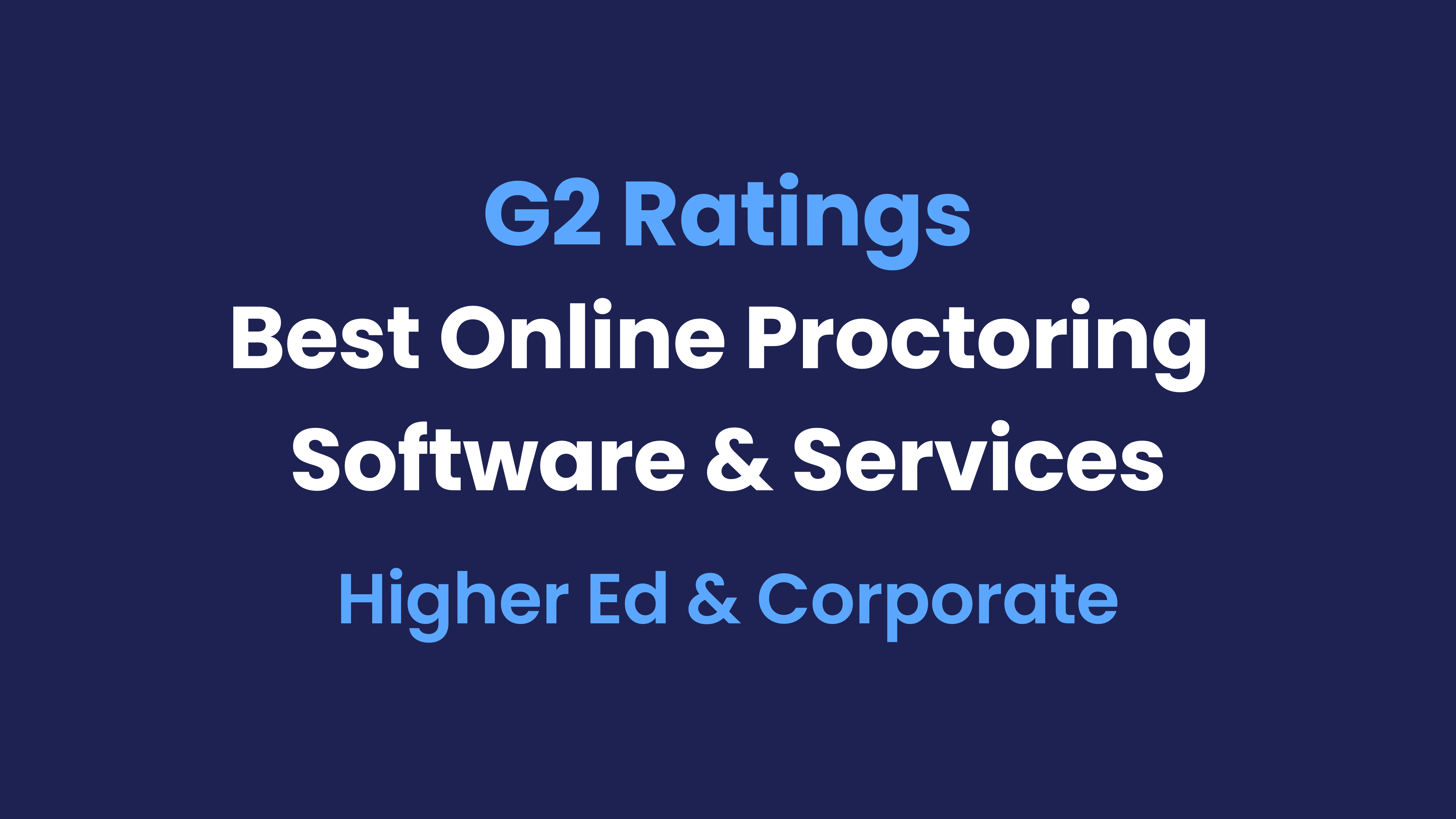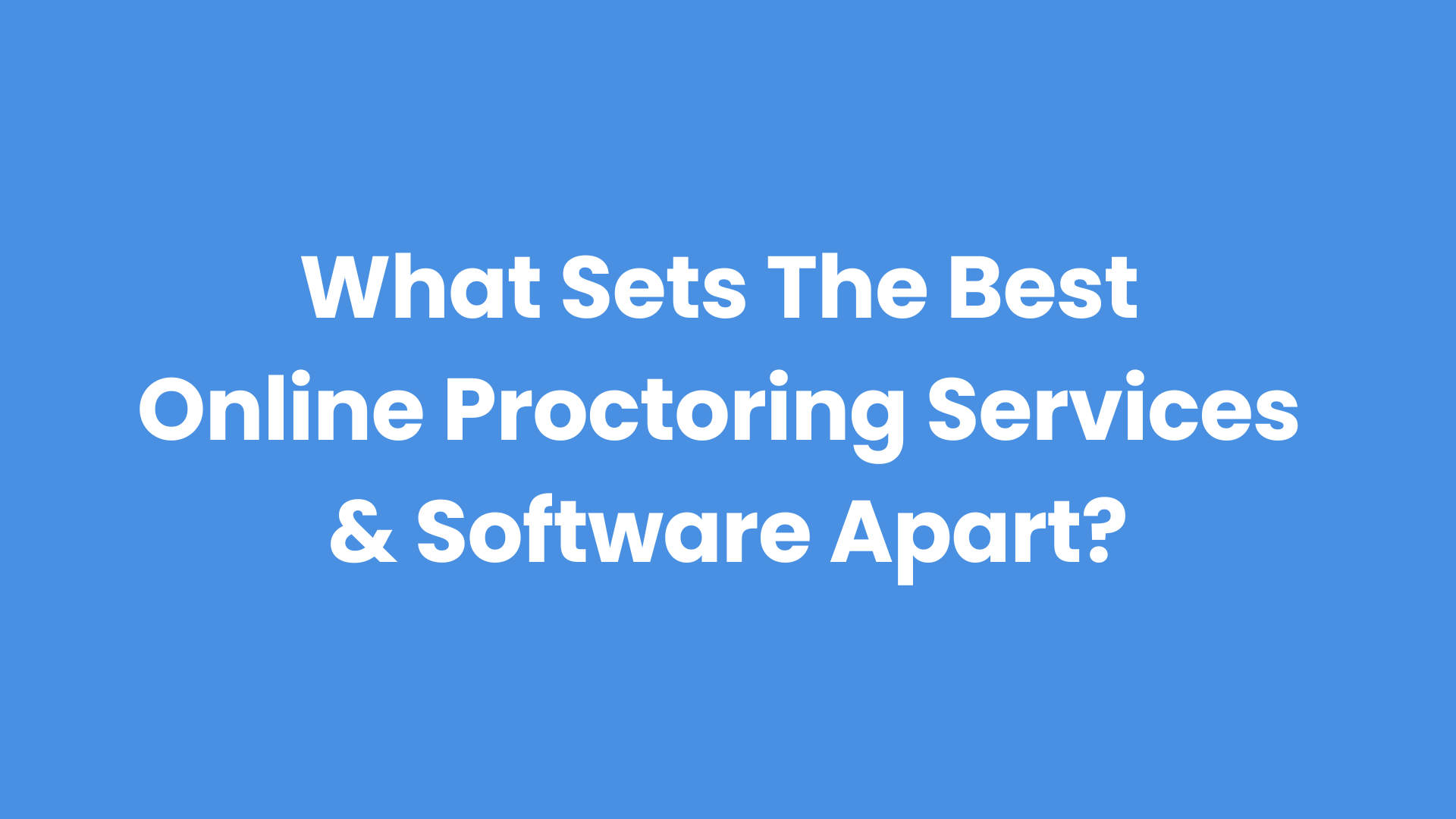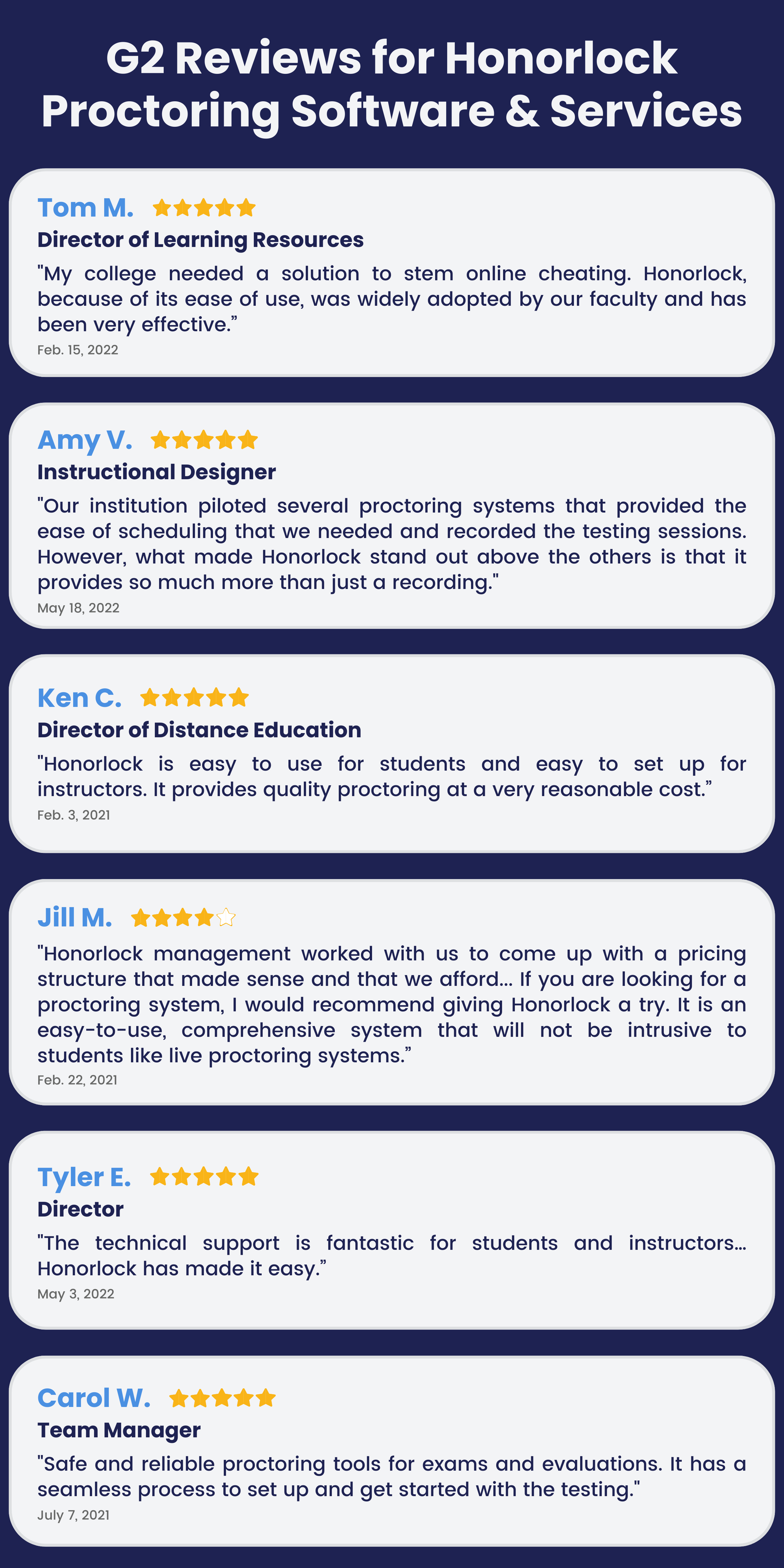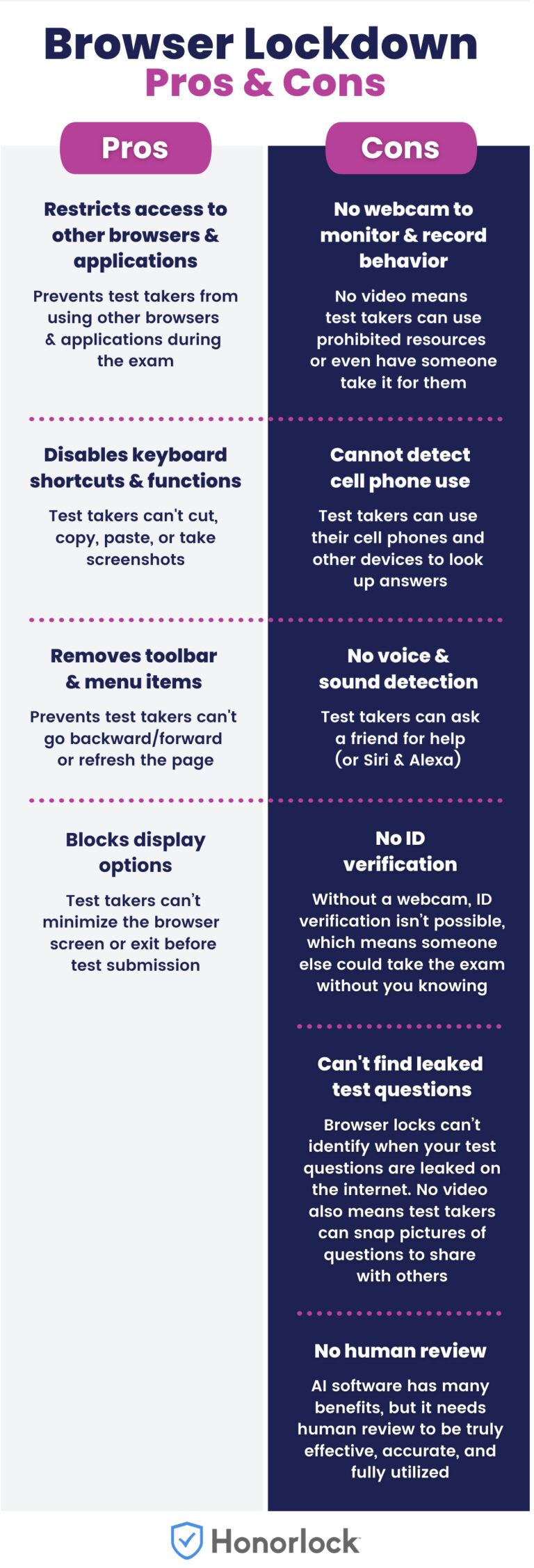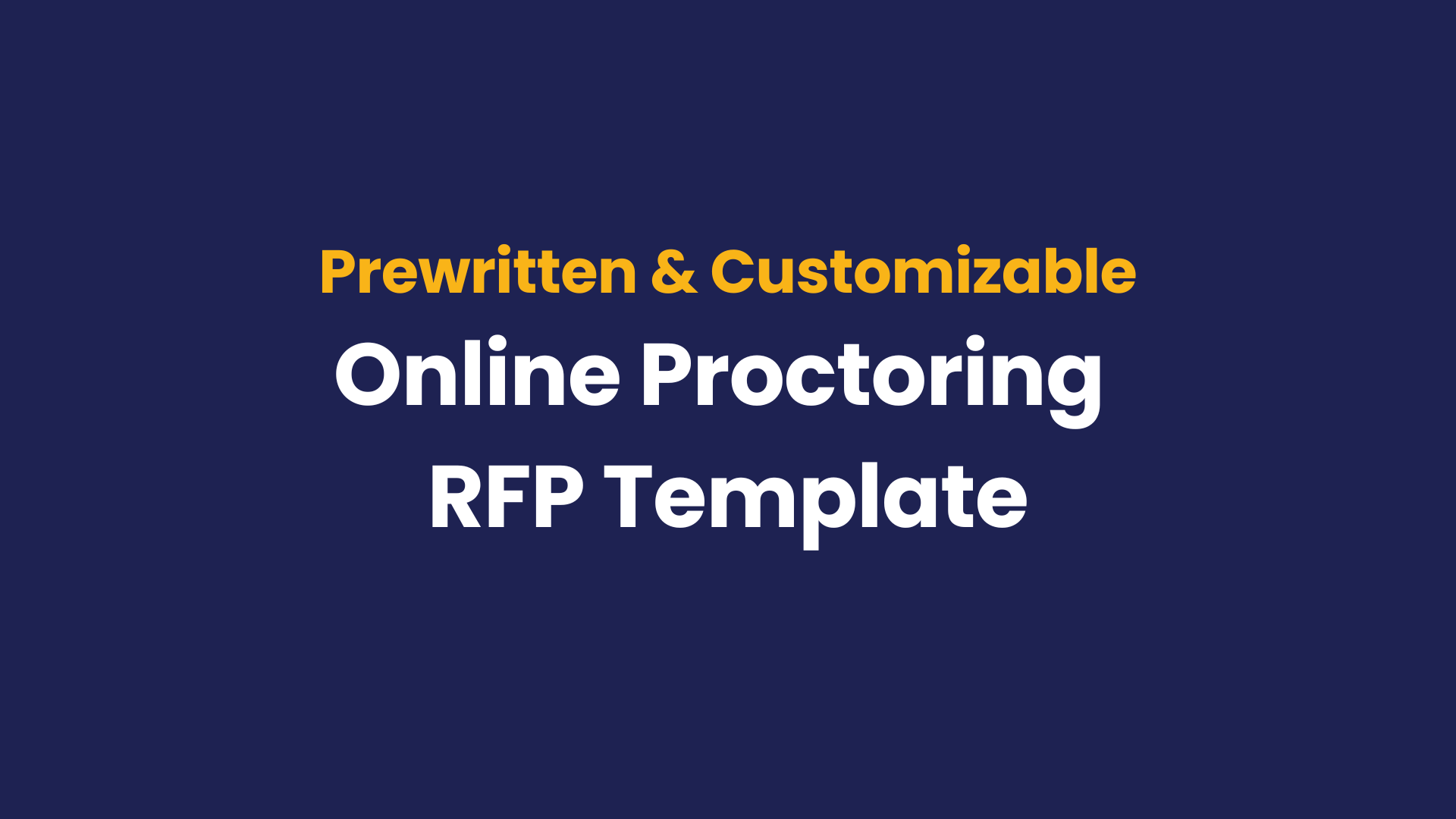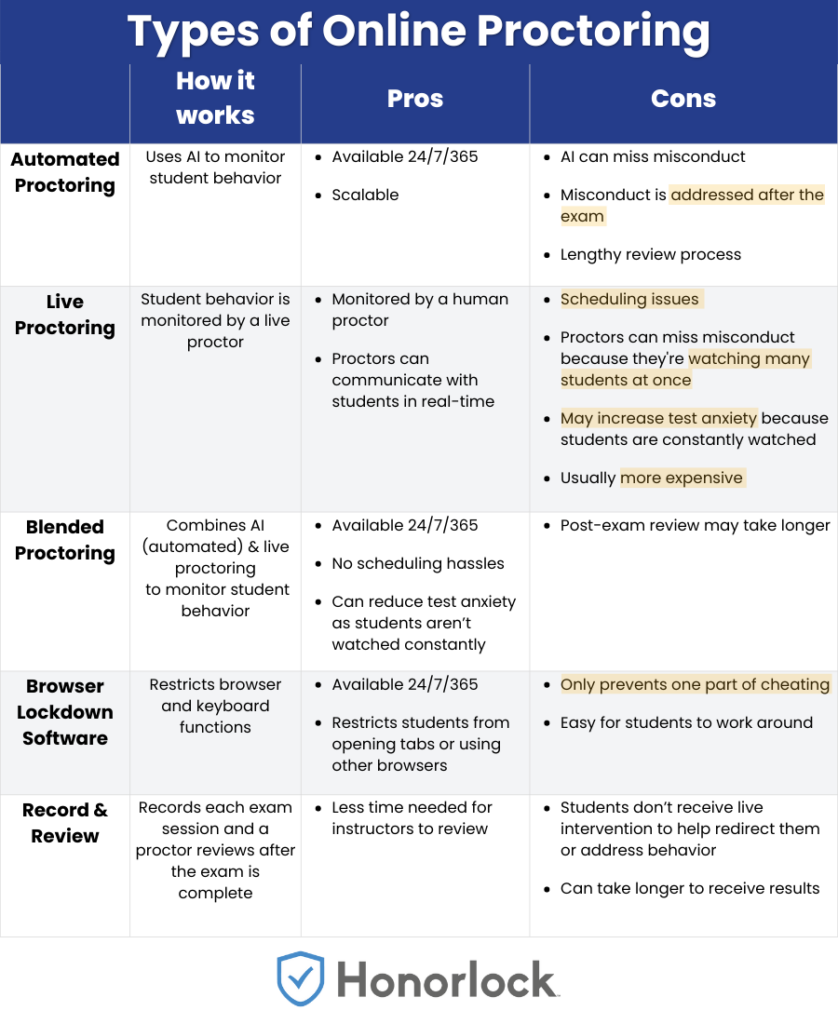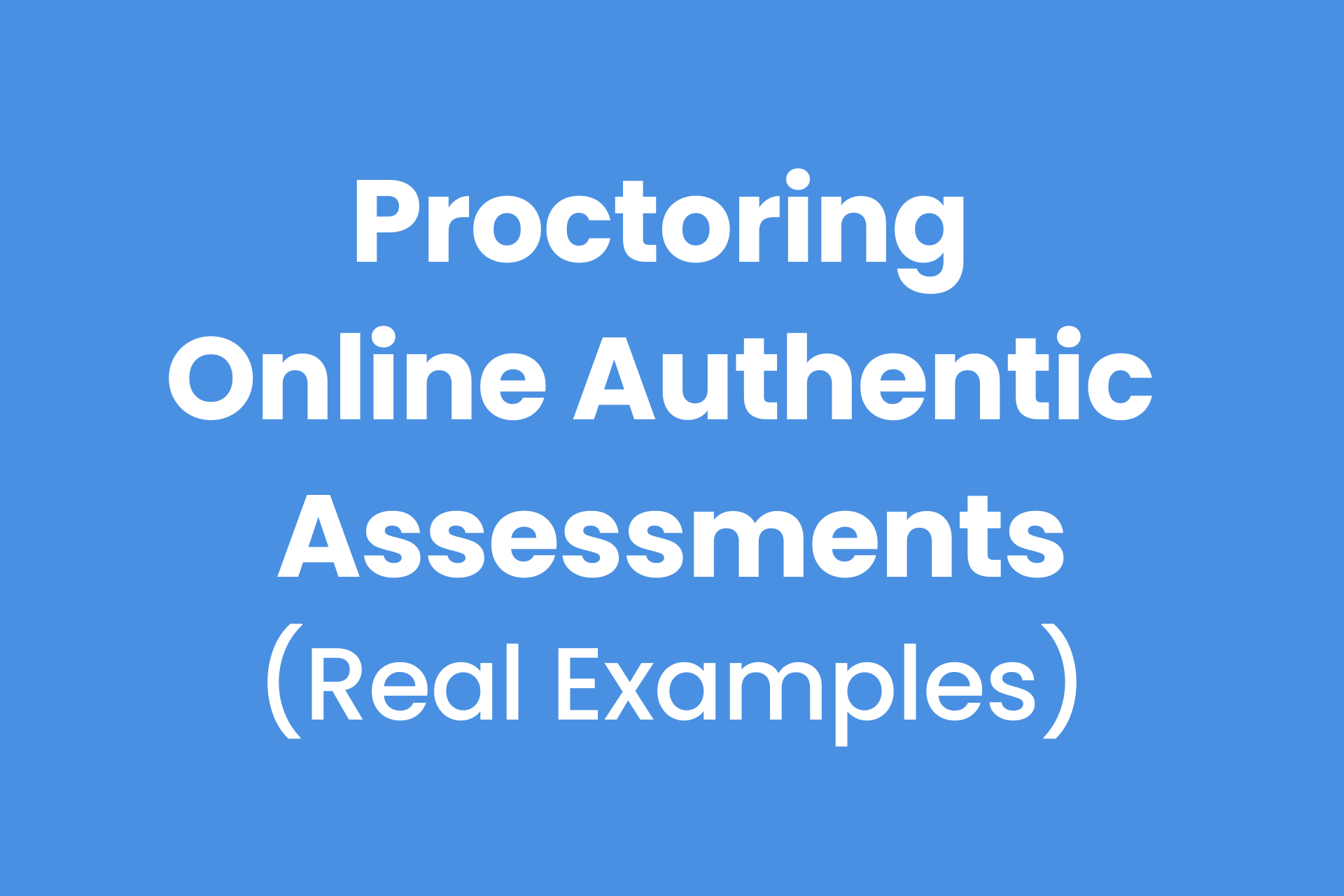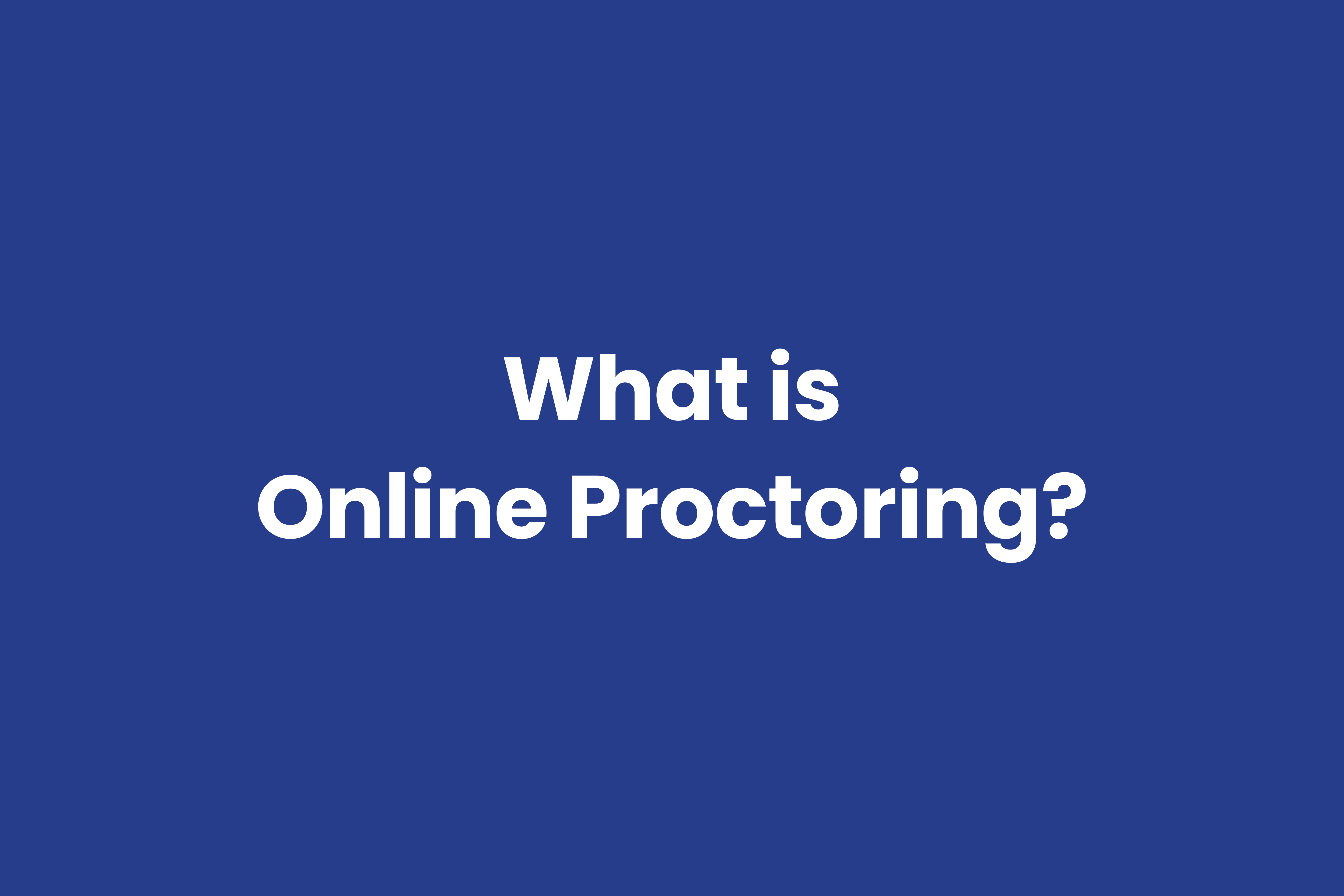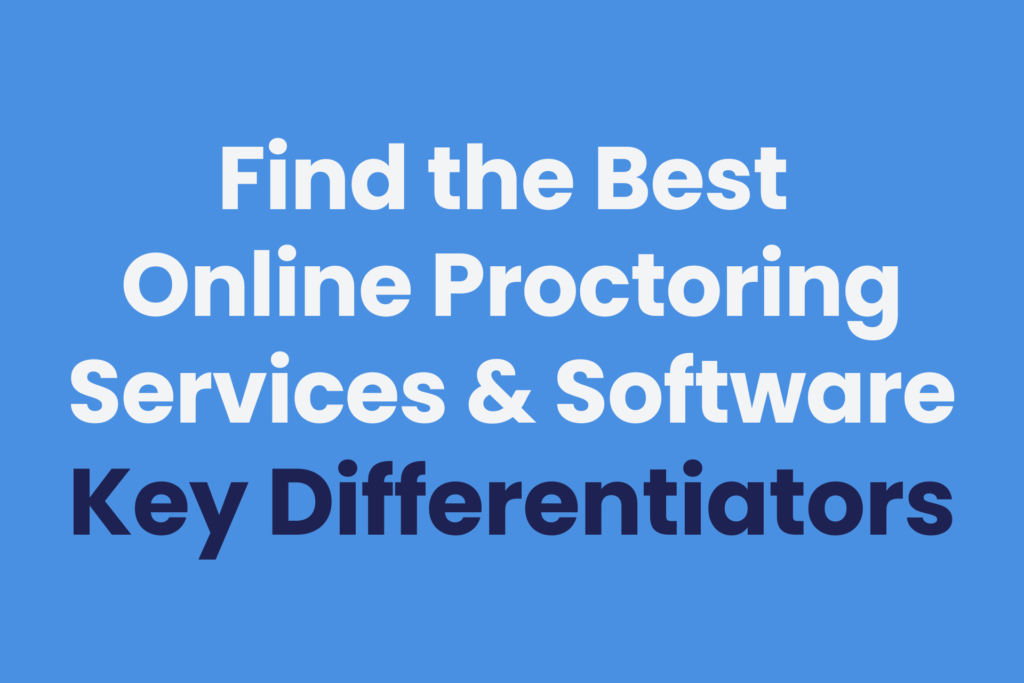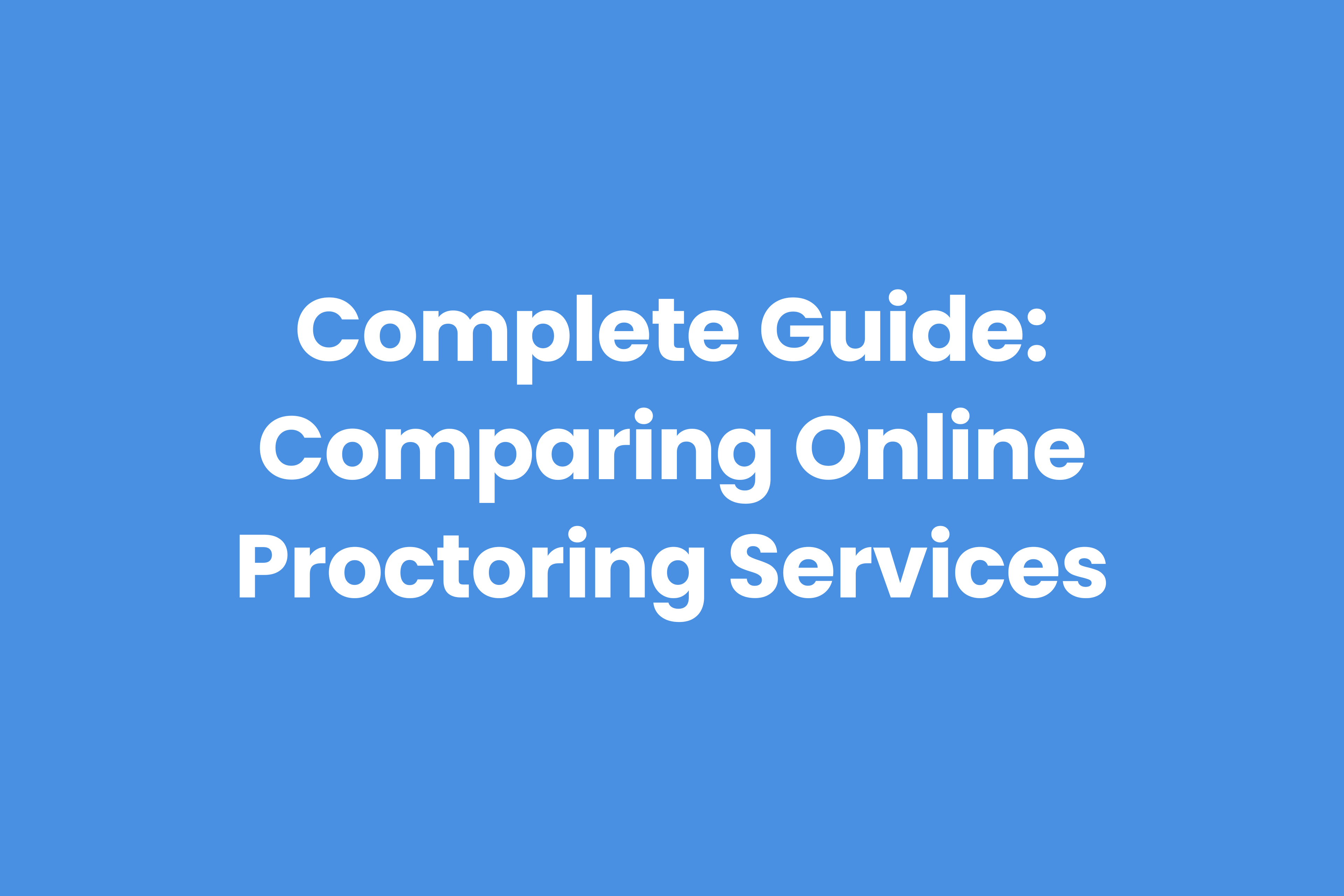G2 is the largest and most trusted peer-to-peer software review site with about 80 million people each year and over 2.2 million authentic reviews.
Two important words to remember from above: authentic reviews
ID verification
Obviously, you want to know that the person taking the proctored exam is the person getting credit for it. While most online proctoring platforms have ID verification, they aren’t the same. Some are quick and simple. Others are time-consuming and invasive.
- How invasive is it? What information is collected? Does the proctoring software use biometric data like facial recognition?
- Is it easy? What’s the process like, and how long does it take?
Honorlock’s ID verification captures a picture of the test-taker and their photo ID and ensures the name on the ID matches the name in the LMS in about a minute. No facial recognition. That’s it.

ID verification ratings
Browser lockdown
If you’re only using browser lockdown software to proctor online exams, you’re essentially just locking your windows but leaving your doors wide open.
Meaning that only locking the browser won’t really prevent cheating. If a test taker has a cell phone, they can get around it.
But a browser lock is still an important part of a larger solution. And instructors may even want to allow access to certain sites while blocking all others. For example, allowing access to course notes or an online study, while blocking all other sites. Some allow that, some don’t. Make sure the solution’s browser locking is customizable.
Honorlock’s Browser Guard, which is just one component of a comprehensive proctoring solution, is customizable to block all sites and software or allow the ones you want, and it prevents keyboard shortcuts like copying and pasting.

Browser lockdown software ratings
Video recording
Video recording is a staple of proctoring, but it’s important to understand how it’s done and how it’s used.
Do you only want behavior recorded to watch later? Or do you want AI to monitor behavior during the exam, record it, and you’ll just watch the important behaviors that need your attention?
Honorlock’s AI uses the webcam to monitor and record behavior. If the AI detects suspicious behavior during the exam, it alerts a live proctor to review and intervene if necessary. After the exam is over, instructors and admins get a report with proctor-verified violations and can access time-stamped video recordings in full HD quality (many proctoring services only provide SD).

Video recording ratings
Automatic behavior flagging
This is one part of online proctoring that separates the best from the rest.
From cell phone detection and video monitoring to sound detection and room scans, there are many AI proctoring tools to consider that impact the entire experience for all users.
Some AI proctoring software will flag almost anything.
Sneezing – flag.
Talking to themselves – flag.
Looking away from the screen while thinking – flag.
These distract test takers and create more work for administrators during exam reviews. But Honorlock’s approach avoids distractions and extra work. Powerful AI monitors behavior and alerts a live proctor if it detects suspicious behavior. The proctor can review the behavior and decide whether to intervene or not. If the behavior isn’t problematic, the proctor won’t intervene and administrators can skip it when they review.

AI behavior flagging ratings
Live proctors
Option 1: There’s a box on your screen of a proctor watching you take an exam
Option 2: No box with a stranger watching you take your exam, and you’ll only interact with a proctor via chat if there’s any behavior that needs to be addressed
Most would choose Option 2 because it isn’t creepy and distracting… And that’s the approach Honorlock uses. You’ll also want to consider what the interactions are like between test takers and proctors. Honorlock’s full-time online proctoring team received training from a nationally certified counselor and educator on providing help and support during moments of test anxiety and frustration. This helps create a better test environment that reduces anxiety and allows test takers to focus.

Live proctoring ratings
Test session reports
Test reports can save admins a lot of time… or waste a lot of time.
- Time-stamped for violations, notable behaviors, or potentially suspicious behaviors/activities (as opposed to reviewing flags)
- Available within the LMS dashboard to avoid extra logins/passwords
Honorlock’s exam reports save time and make the review process simple. After proctored exams are complete, instructors/admins can access in-depth reports with time-stamped recordings within the LMS dashboard. Reports include test taker violations and notable or suspicious behaviors/activities. In addition, proctors will send a detailed email to test administrators about suspicious behavior observed.

Proctored exam reports ratings
Online proctoring dashboard
How can you monitor proctoring utilization across the institution? How do you determine if the online proctoring platform is actually effective?
In 2023, Honorlock plans to release the most robust analytics reporting available in the online proctoring space.
- Compare proctoring usage from one semester to the next
- Analyze the impact of Honorlock’s exam security features such as Search & Destroy and Extension Detection
- Understand most common exam violations
Honorlock’s dashboard will provide powerful, on-demand analytics empowering institutions to uphold equity, integrity, and exam security by understanding usage trends.

Proctoring dashboard ratings
LMS integrations
The integration between the online proctoring platform and the LMS impacts the entire experience for every user. It’s the difference between a secure proctoring platform that’s easy to use and a frustrating experience that puts security at risk.
- No extra logins or passwords are needed for admins or test takers.
- Exam admins create exams in the LMS like normal and then choose the proctoring features they want to use
- Test takers log into the LMS and launch the exam before verifying their ID and getting started.
- The integration process takes about an hour to complete
Honorlock’s proctoring platform integrates with Blackboard Learn, Instructure Canvas, Moodle, D2L Brightspace, and Intellum. We also offer custom LMS integrations.

Proctoring LMS integration ratings
Other things to look for to find the best online proctoring service and software
Some online proctoring services claim to have cell phone detection, but Honorlock has the most robust cell phone detection available.
Honorlock’s AI proctoring software can detect when students attempt to use their cell phones to access test bank content during the tests, and we’re the only online proctoring company detecting device sharing apps like Apple Handoff.
Honorlock’s Search & Destroy technology scours the internet to find leaked exam questions. If leaked exam questions are found, instructors are given simple steps to take control of their exams’ integrity.
Unlike the technologies at proctoring companies, instructors using Search and Destroy typically won’t have to deal with the hassle of manually selecting which questions they would like to search for. In just a few minutes, Search and Destroy searches all questions included in the exam.
If proctored exams are available 24/7/365, support should be available at all times too. The quality of support matters too. Ask proctoring services about support satisfaction and support response times.
Honorlock offers 24/7/365 live human support at no extra cost. Our support response time is less than five seconds, and we have the highest support satisfaction rating (93%) on G2 for online proctoring companies.
Variable prices can add up quickly. Find an online proctoring service, like Honorlock, that offers online proctoring at a flat rate cost per user or exam. Including implementation and 24/7/365 live human support.
While there are many online proctoring companies offering different software and services, make sure that you’re choosing the right one for your needs. We encourage you to dig into G2’s reviews for online proctoring because we know that you’ll come to the same conclusion that many others have: Honorlock is the leader in online proctoring and a true partner in academic integrity.
Schedule a Demo

